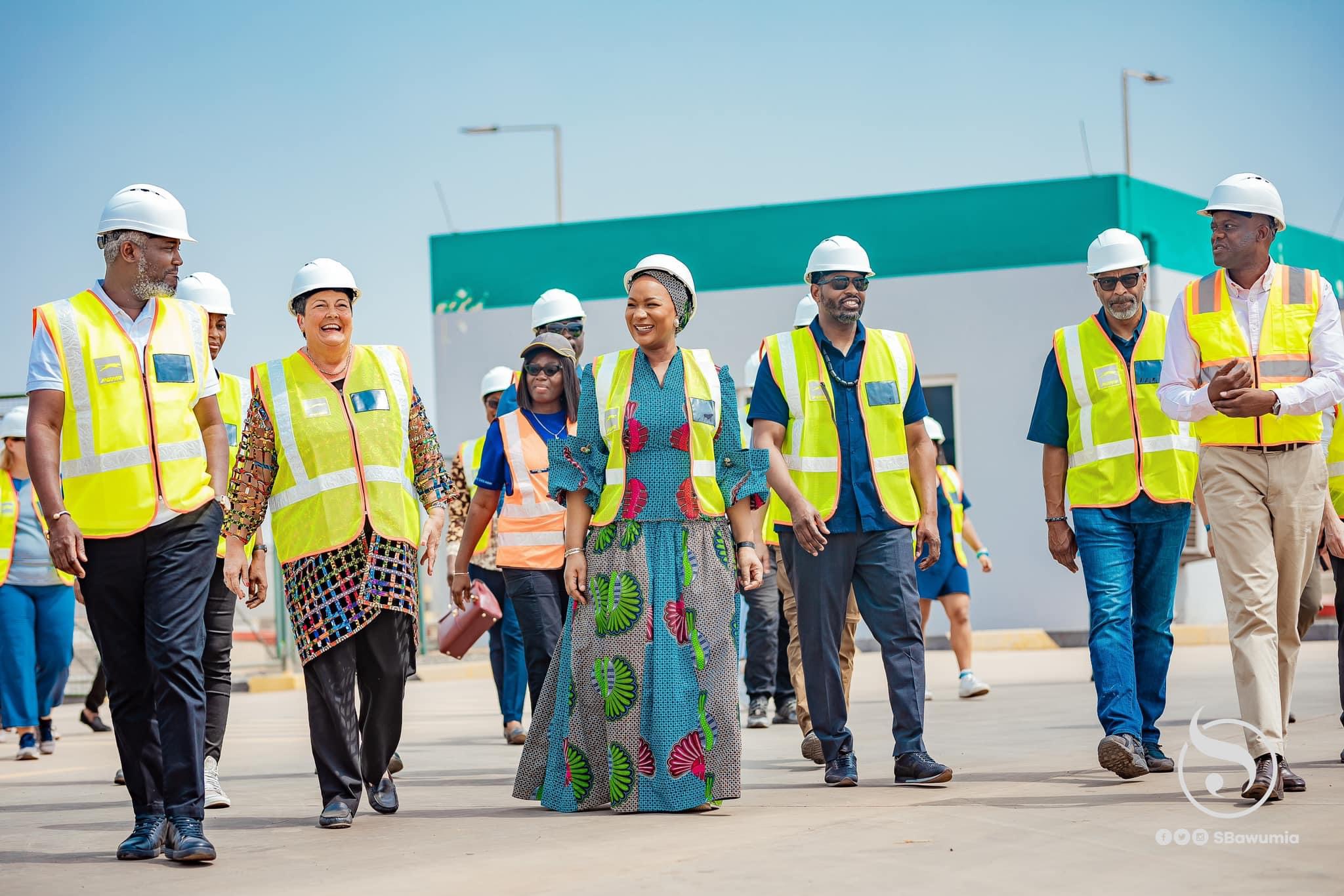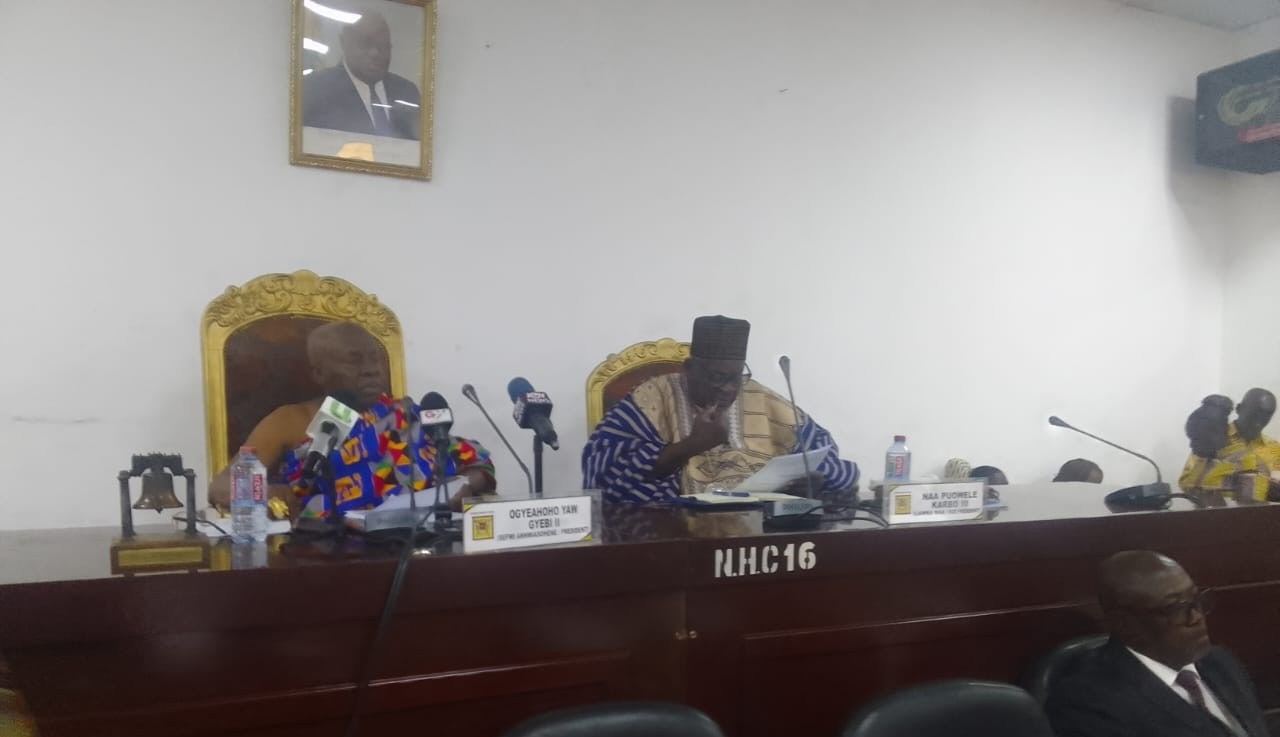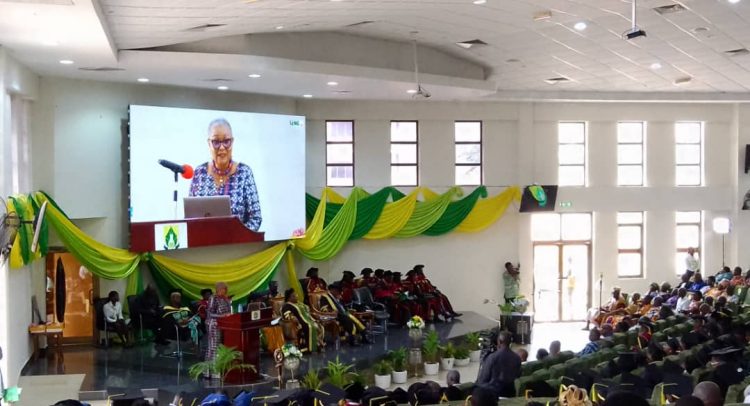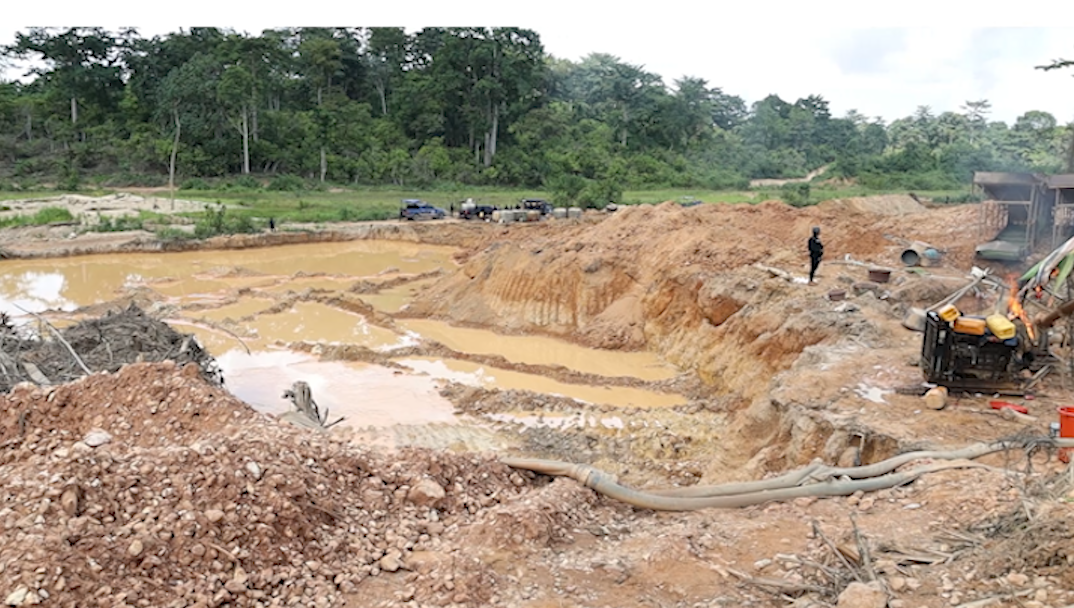
Illegal mining, also known as “galamsey” in Ghana, has become one of the country’s most pressing environmental crisis.
This unregulated activity, often undertaken by small-scale miners, has not only led to the destruction of natural landscapes but has also contributed significantly to mass pollution of water bodies.
The devastating effects of illegal mining are being felt nationwide, with rivers, lakes, and streams severely contaminated by harmful chemicals and deposits. As Ghana grapples with this environmental crisis, it is imperative to take swift and effective action to protect its water resources for the present and future generations.
The country is blessed with abundant water resources, including major rivers such as the Pra, Ankobra, Offin, and Birim, which supply water to millions of residents in the country. However, many of these water bodies have become highly polluted due to illegal mining activities. The rapid increase in galamsey operations over the years, driven by the high global demand for gold, has turned Ghana’s rivers into toxic and muddy streams.
The main pollutants associated with illegal mining are mercury, cyanide, and sediment. Mercury, used in gold extraction, is one of the most toxic elements known to man. When mercury enters water bodies, it transforms into methylmercury, a highly poisonous compound that accumulates in aquatic life and works its way up the food chain, eventually reaching humans.
Cyanide, another dangerous chemical used in mining, also contaminates water supplies and poses significant risks to both wildlife and people who depend on these water bodies (UNDP May 2021).
Sedimentation from illegal mining further compounds the problem. Large-scale excavation of riverbeds leads to soil erosion, causing sediment to accumulate in rivers and streams. This sediment chokes water treatment facilities, reduces water quality, and causes rivers to silt up, making them more vulnerable to flooding.
The environmental consequences of illegal mining are widespread and severe. Entire ecosystems are being destroyed as forest reserves and farmlands are cleared to make way for mining activities. Riverbanks, which were once fertile, have become barren wastelands scattered with abandoned mining pits. Fish populations, which are a vital source of livelihood for many rural communities, have drastically depleted due to severe water contamination.
The health implications are equally catastrophic. Communities that rely on rivers for drinking water, agriculture, and fishing are exposed to dangerous chemicals each day. Mercury poisoning can lead to kidney damage, respiratory issues, and developmental problems in children. The long-term exposure to cyanide and other mining-related pollutants has led to increased incidences of cancer, skin diseases, and other health problems in mining communities and beyond.
While galamsey provides employment for many, especially in rural areas, its long-term impact on local communities is detrimental. Agricultural productivity has declined as farmlands are destroyed, and access to clean water has become increasingly scarce. This has exacerbated poverty in many regions, as communities are left without sustainable sources of income and potable water.
The tourism sector in the country has also been affected due to water pollution. Rivers that once attracted tourists for their natural beauty and recreational activities are now unsuitable for such purposes, further reducing economic opportunities for local communities.
The Ghanaian government has made numerous attempts to combat illegal mining and water pollution. In 2017, the government introduced “Operation Vanguard,” a military task force aimed at stopping galamsey operations across the country. Additionally, laws have been enacted to ban illegal mining, and several public education campaigns have been launched to raise awareness of the environmental damage caused by galamsey.
Despite these efforts, illegal mining continues unabated in many parts of the country. The scale of the crisis, coupled with the lucrative nature of galamsey, has made it difficult for the government to fully enforce its policies. Corruption, weak law enforcement, and a lack of coordination between stakeholders have further undermined the effectiveness of these efforts.
To address the illegal mining crisis and mass water pollution in Ghana, a multi-faceted approach is needed. The following measures should be implemented:
- Strengthen Law Enforcement and Accountability
One of the primary reasons for the persistence of illegal mining is the lack of effective enforcement of existing laws. Law enforcement agencies need to be adequately resourced and empowered to clamp down on illegal operations. Moreover, there should be stronger accountability measures to prevent corruption among law enforcement officers, public officials, and other stakeholders. - Introduce Alternative Livelihood Programs
Many people engaged in galamsey have no viable alternatives for earning a living. The government should work with local authorities to introduce alternative livelihood programs that provide sustainable income opportunities, such as agriculture, reforestation, or eco-tourism initiatives. This would reduce the economic reliance on illegal mining and encourage communities to protect their environment. - Implement Technology in Mining and Water Protection
Technology can play a crucial role in mitigating the environmental impact of mining. The government could introduce more sustainable, mercury-free gold extraction techniques and incentivize their adoption by small-scale miners. Furthermore, water monitoring technologies should be deployed to track pollution levels in real-time and allow for quicker intervention when illegal activities are detected. - Engage and Empower Local Communities
Local communities are often the first line of defense against illegal mining and water pollution. Empowering traditional leaders, local government authorities, and citizens to monitor and report illegal activities is crucial. By involving communities in environmental protection efforts, they can take ownership of their natural resources and work towards their conservation. - Rehabilitation and Reclamation of Degraded Lands
Land reclamation efforts need to be scaled up to restore areas affected by illegal mining. Reforestation projects should be prioritized, and degraded lands should be rehabilitated to support agriculture and biodiversity. The government should work closely with mining companies and communities to ensure that abandoned mining sites are properly rehabilitated. - Increase Public Education and Awareness Campaigns
Public awareness campaigns should be intensified to educate citizens about the long-term effects of illegal mining on water resources, health, and the environment. Through education, individuals can make more informed decisions and be more proactive in safeguarding their natural resources. - Collaboration Between Stakeholders
The fight against illegal mining and water pollution requires collaboration between the government, civil society, private sector, and international partners. Mining companies should be held responsible for ensuring that their operations comply with environmental standards. Civil society organizations can play a critical role in monitoring activities on the ground, while international partners can provide technical and financial assistance for water conservation and land restoration programs.
In conclusion, illegal mining and the resulting mass water pollution in Ghana pose a severe threat to the environment, public health, and socio-economic stability. While the government acknowledges some progress, significant efforts are still required to address this escalating crisis.
A holistic approach emphasizing stronger law enforcement, alternative livelihoods, community involvement, and sustainable mining practices is essential for reversing the damage and safeguarding Ghana’s water resources for future generations.
Edgar Balinia Adda
International Development Specialist Halifax, Nova Scotia, Canada.
The post Illegal Mining and mass water pollution in Ghana- A Growing Crisis first appeared on 3News.
Read Full Story




















Facebook
Twitter
Pinterest
Instagram
Google+
YouTube
LinkedIn
RSS